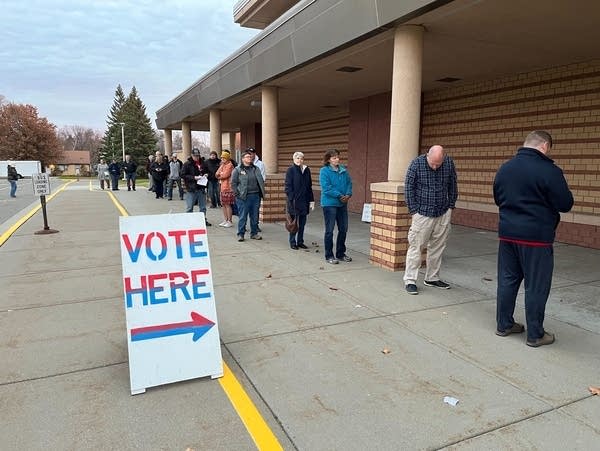Voter sign-up bill causes partisan split in MN Legislature

Voters waited for the polls to open at the Kaposia Education Center in South St. Paul on Election Day 2022. Precinct 5 is the largest in Dakota County and nearly 40 people lined up outside the school this morning to cast their ballots.
Tim Nelson | MPR News 2022
Go Deeper.
Create an account or log in to save stories.
Like this?
Thanks for liking this story! We have added it to a list of your favorite stories.


